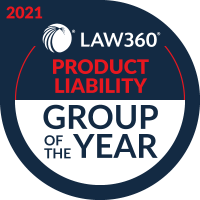Class action lawsuits allow plaintiffs to pursue the legal rights of a large group of consumers—sometimes hundreds of thousands—who were all affected by the same illegal conduct. But what happens when a small portion of that group wasn’t harmed by the defendant’s misconduct? The answer, according to one recent appeals court decision, is that the case cannot proceed as a class action.
The Asacol Case
In In re Asacol Antitrust Litigation, purchasers of the prescription drug Asacol alleged that Warner Chilcott—the maker of the brand name drug Asacol—implemented an illegal “product hop” scheme. In a product hop, shortly before generic versions of a drug become available, the brand name drug manufacturer discontinues the drug and replaces it with a nearly identical version. The generic drug manufacturers then need to restart the lengthy process of obtaining approval from the United States Food and Drug Administration and the availability of lower-priced generic versions is delayed.
The district court concluded that approximately 10% of the proposed class of Asacol purchasers would have continued buying the brand name version even if the generic version had been available. These “brand loyalist” purchasers were therefore not harmed by Warner Chilcott’s scheme to delay the release of generic Asacol.
The district court nonetheless allowed the case to proceed as a class action because the plaintiffs’ damages estimate took the brand loyalists into account and any unharmed brand loyalists could be weeded out in later stages of the case.
The Appeals Court’s Rulings
The First Circuit Court of Appeals disagreed, concluding that because the proposed class included individuals who were not harmed by Warner Chilcott’s scheme, the case could not go forward as a class action.
“Injury-in-fact” is an element of any plaintiff’s antitrust claims, and there was no dispute in the case that brand loyalists were not injured. It is, however, impossible to know exactly which Asacol purchasers would or would not have bought the generic had it been available. In other words, while the plaintiffs could identify how many brand loyalists there would likely have been if a generic had been available, they could not identify which purchasers would have been brand loyalists.
The plaintiffs stressed that each class member that seeks a recovery in the case would have to testify in a written statement given under oath that he or she would have bought the generic had it been available. In essence, class members would state that they would not have been brand loyalists.
The Federal Circuit held that Warner Chilcott had a right to challenge each class member’s statement that he or she would not have been a brand loyalist. And because this process would require the court and the parties to individually evaluate each class member’s claim, the case involved more individual issues than common issues and could not proceed as a class action.
What’s Next for Plaintiffs?
In the coming months and years, class action plaintiffs and class action lawyers across the country will need to deal with the ramifications of the Asacol decision. Different appeals courts may apply different legal standards, and many—if not most—appeals courts deciding similar cases would likely come to a different conclusion than the First Circuit in Asacol.
Our Commitment to Excellence
Girard Sharp LLP represents consumers, investors, and institutions in class actions and other complex litigation nationwide. Our class action lawyers have obtained multimillion-dollar recoveries for victims of unfair and deceptive practices in antitrust, financial fraud, and consumer protection matters against some of the country’s largest corporations (including Raymond James, John Hancock, Sears, Yahoo, and JP Morgan Chase). Girard Sharp LLP has earned top tier rankings from U.S. News and World Report for Securities and Class Action Litigation and was selected as a 2018 Elite Trial Lawyers finalist by the National Law Journal.





